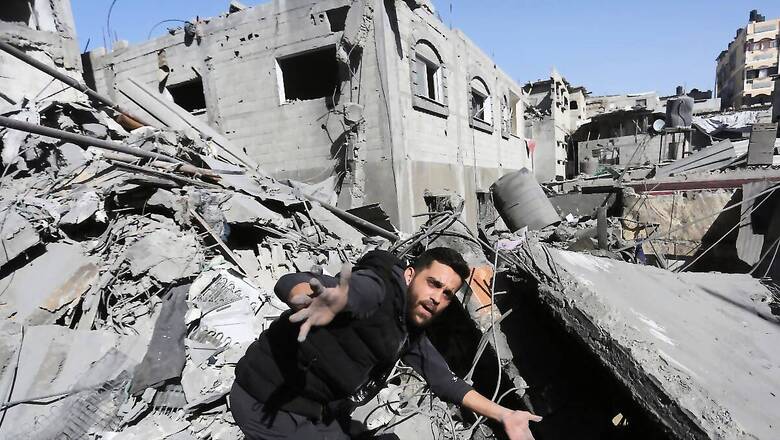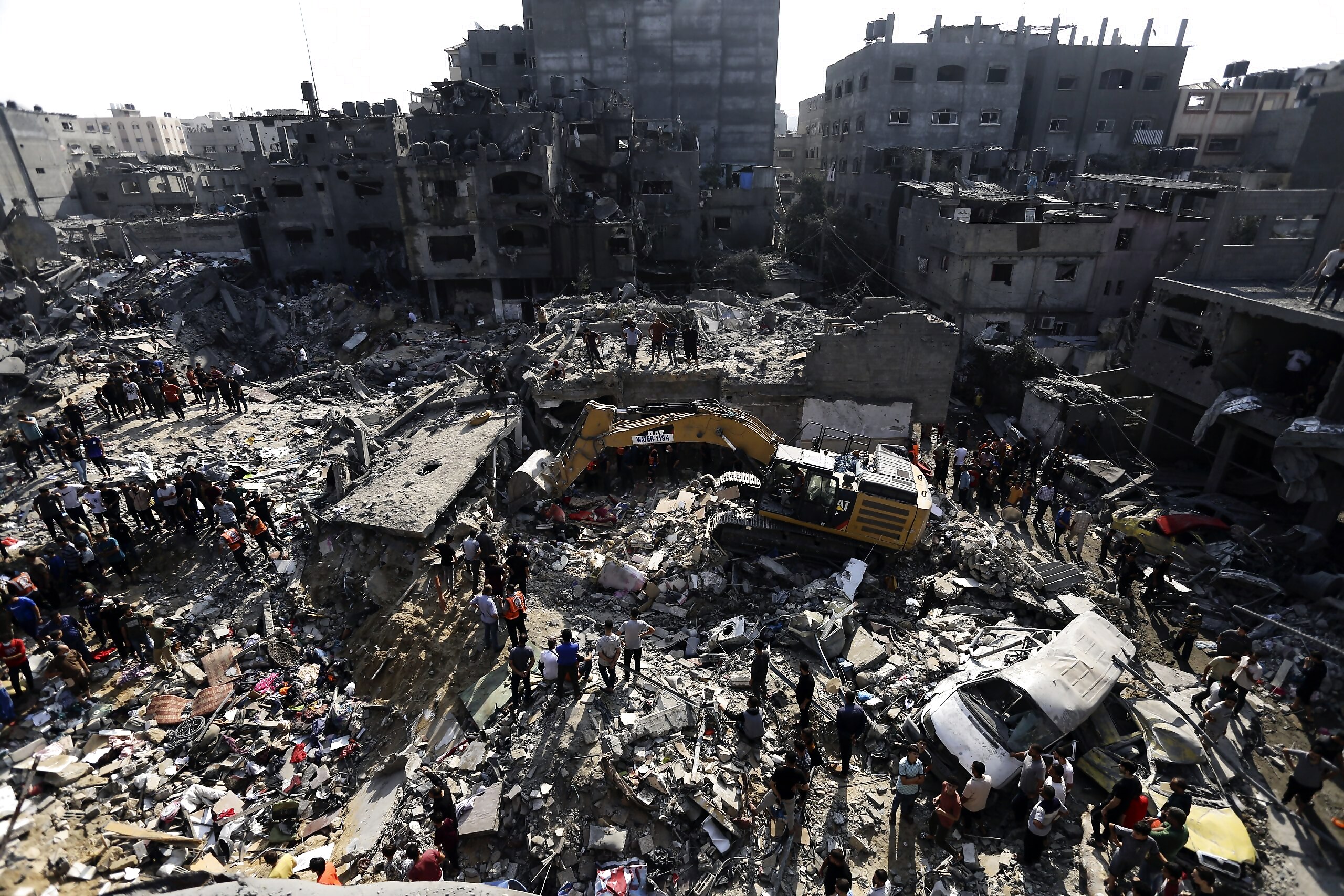
views
A four-day truce in the Israel-Hamas war is set to begin on Friday in the first major relief after seven weeks of fighting that has claimed thousands of lives.
The start of the truce, set to begin at 7:00 am, will be followed by the release of a first group of 13 hostages being held in Gaza and several Palestinian prisoners from Israeli jails.
Israel’s military offensive that included airstrikes and land offensive has turned much of northern Gaza into an uninhabitable moonscape as whole neighbourhoods have been erased
The intense fighting has destroyed homes, schools and hospitals and those buildings still standing are battered shells. But the scale of calamity raises a question on the future of the Palestinian territory and the people who would live there.
Bombardment in Most Densely Populated Areas
Israel has used powerful explosives in densely packed residential areas in North Gaza, which has killed over 13,000 Palestinians and led to staggering destruction. The Israeli bombings has become one of the most intense air campaigns since World War II, said Emily Tripp, director of Airwars, a London-based conflict monitor.
In the seven weeks since Hamas attack on October 7, Israel unleashed more munitions than the United States did in any given year of its bombing campaign against the Islamic State group, which the UN calls as the deadliest urban campaign since World War II.

About half of all buildings across northern Gaza have been damaged or destroyed, with an estimated 1.7 million people now homeless, according to Associated Press.
An Israeli reporter who was taken to see the Gazan town of Beit Hanoun by the Israeli military reported on November 12 that “barely a single inhabitable building remains standing”. More than 52,000 people had lived there before the war.
Most Hospitals Knocked
Gaza’s biggest hospital Al-Shifa hospital had been the focus of an Israeli special forces operation for days earlier this month, as the Israeli troops raided the hospital on suspicion that it was being used as a Hamas base.
The war has destroyed 27 of 35 hospitals across Gaza out of operation, according to the World Health Organization. The destruction of other critical infrastructure has consequences for years to come.
According to Gaza’s Ministry of Health, only nine hospitals in Gaza were partially functioning as of November 16. Moreover, 55 ambulances in Gaza had been damaged, with critical shortages reported of drugs and blood products.
“Bakeries and grain mills have been destroyed, agriculture, water and sanitation facilities,” said Scott Paul, a senior humanitarian policy adviser for Oxfam America. “You need more than four walls and a ceiling for a place to be habitable, and in many cases people don’t even have that.”
Water and Sanitation
The UN Palestinian refugee agency (UNRWA) said that due to an absence of fuel, 70% of the people in southern Gaza had no access to clean water.
The seawater desalination plant in Khan Younis in the south was operating at 5% of its capacity, UNRWA said, while the two water pipelines from Israel were operating. In the north of the territory, the water desalination plant and the Israeli pipeline are not functioning.
Most of Gaza’s 65 sewage pumps were out of service, OCHA said, and raw sewage has started to flow in the streets in some areas.
Where to Go?
In the last one month, Israel told the Palestinians to move towards southern Gaza to escape the fighting. Now they are warning the Palestinians in southern Gaza to move again, toward a slice of territory called Muwasi along the coast.
For many Palestinian families, the truce comes too late and those displaced say four days won’t be enough.
“This is our nakba,” journalist Tareq Hajjaj said, referring to the mass displacement of an estimated 700,000 Palestinians during the 1948 war surrounding Israel’s creation — an exodus Palestinians call the “nakba,” or “catastrophe.”
Although publicly Palestinians reject the idea of being transferred outside Gaza, some privately admit they cannot stay, even after the war ends.
“We will never return home,” said Hajjaj, who fled his home in Shijaiyah in eastern Gaza City. “Those who stay here will face the most horrific situation they could imagine.”
Though most Palestinians publicly reject the idea of being transferred outside Gaza, some admit that staying behind is not possible, even after the war ends.
(With inputs from agencies)



















Comments
0 comment